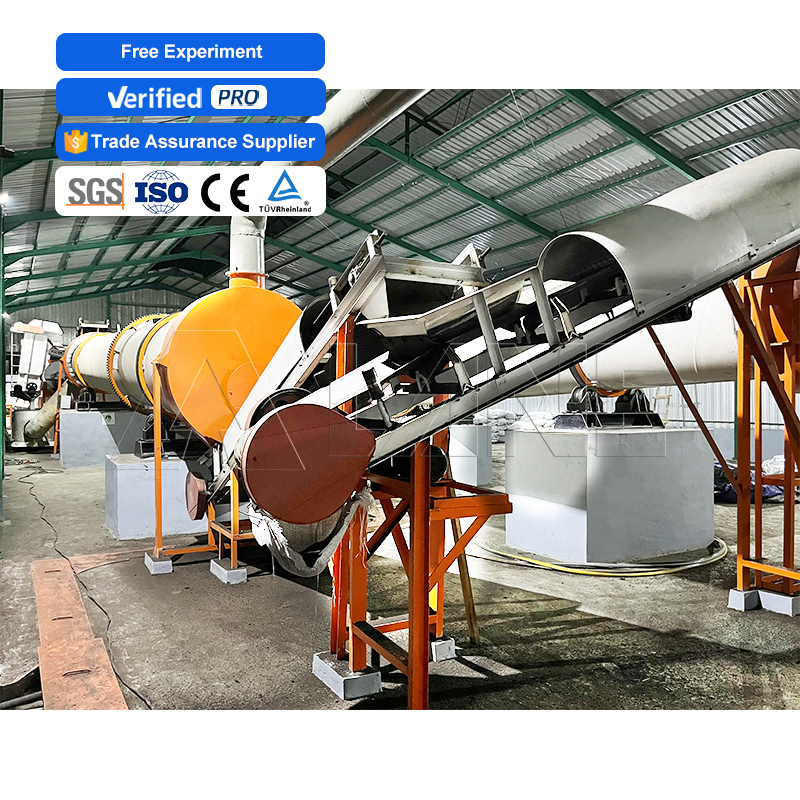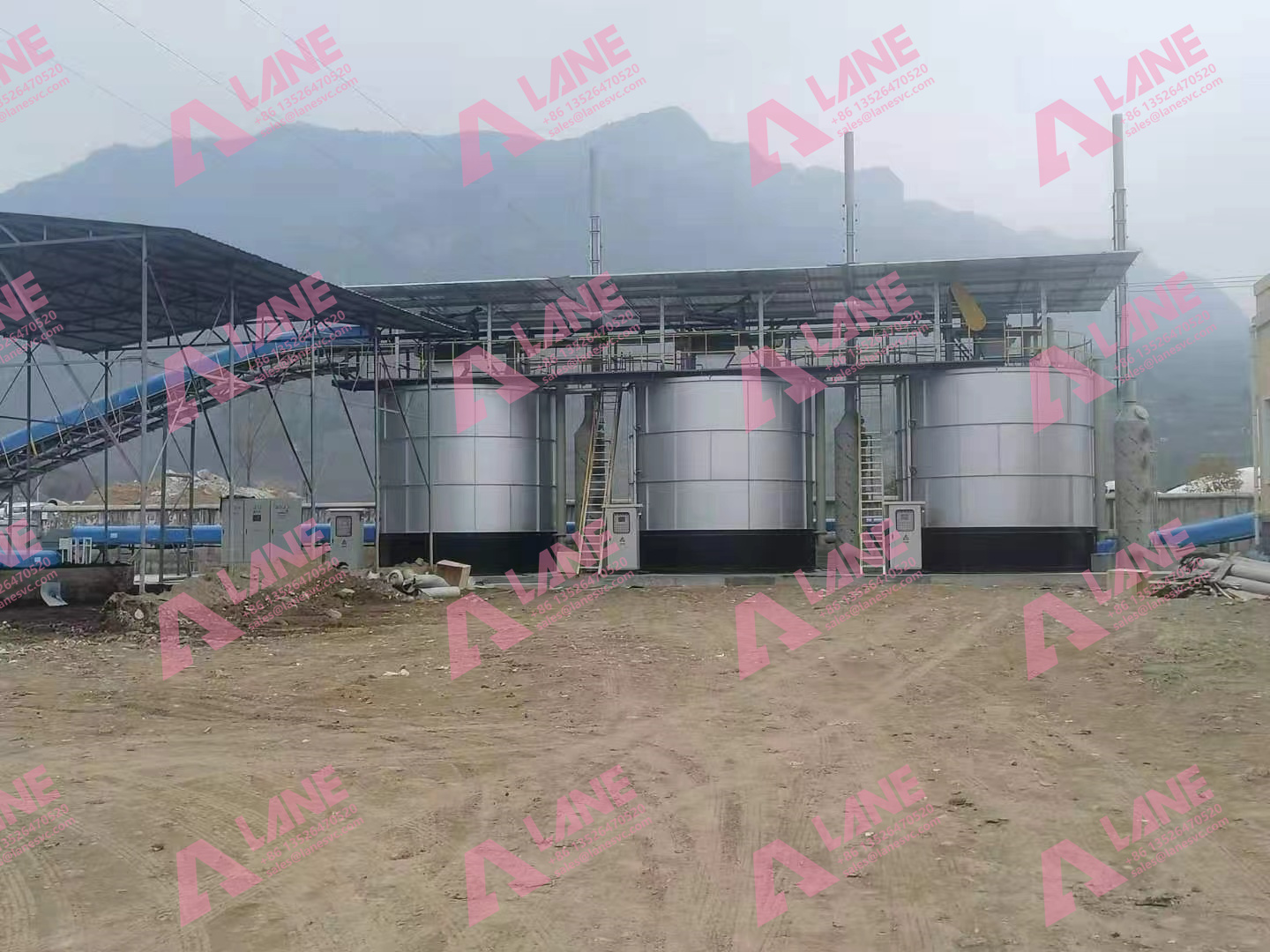A food waste to organic fertilizer processing line is an effective and environmentally friendly solution for dealing with growing amounts of food waste in urban and agricultural settings. As global food consumption rises, so does the volume of discarded organic material from homes, restaurants, and markets. Instead of sending this waste to landfills, this processing system transforms it into nutrient-rich compost, offering both environmental and economic benefits.

1.Understanding the Food Waste to Organic Fertilizer Processing Line
At its core, a food waste to organic fertilizer processing line is a complete set of equipment that converts biodegradable food waste into organic fertilizer through microbial fermentation and mechanical processing. It handles food scraps, leftovers, vegetable peels, and similar materials from restaurants, homes, farms, or food factories.
Unlike traditional disposal methods such as landfilling or incineration, this approach recycles organic nutrients back into the soil, creating both environmental and economic value.
2.Workflow of the Food Waste to Organic Fertilizer Processing Line
The design of the entire system follows the principle of gradual progress, in order to ensure the efficiency and hygiene of the entire process. The following is the workflow of a typical production line for converting food waste into organic fertilizer:
(1) Crushing: Food waste is first sorted and shredded into small particles. Removing plastics, bones, or non-compostable materials at this stage helps improve the quality of the final compost.
(2) Mixing and Moisture Control: To optimize the fermentation process, the shredded waste is mixed with carbon-rich materials such as sawdust, rice husks, or dry leaves. Moisture is adjusted to around 55-65%, which is ideal for microbial activity.
(3) Aerobic Fermentation: The blended material is transferred into fermentation tanks, windrows, or enclosed vessels. Controlled turning and temperature regulation allow beneficial microbes to decompose the waste, usually over 10 to 20 days.
(4) Post-Fermentation Refinement: After fermentation, the material may contain clumps or impurities. It’s screened and, if needed, crushed again to improve consistency.
(5) Granulation and Drying: If pelletized organic fertilizer is required, the compost is shaped into granules. These are then dried and cooled for safe storage and transport.
(6) Packaging: The final product is packaged using automatic machines, making it ready for distribution or farm application.

3.Maintaining Your Food Waste to Organic Fertilizer Processing Line
To ensure smooth and long-lasting operation of your composting line, consider the following:
(1) Clean fermentation tanks and mixers regularly
(2) Check crushers and conveyors for wear
(3) Monitor fermentation temperature and moisture levels
(4) Replace screens or filters as needed
(5) Keep sensors and control systems calibrated
Regular maintenance not only improves efficiency but also extends the lifespan of the equipment.

4.How This Processing Line Creates Value
Investing in a food waste to organic fertilizer processing line is more than just a waste management solution—it’s a long-term strategy that creates value across multiple dimensions of your business or municipality.
(1) One-Stop Organic Fertilizer Solution
Our food waste to organic fertilizer processing line offers an integrated process—from raw food waste collection to final fertilizer packaging. It ensures stable fermentation, precise moisture control, and hygienic output, ideal for urban kitchens, supermarkets, food plants, or municipal projects.
(2) Efficient Conversion, Minimal Waste
The system achieves over 90% utilization of organic matter. Through controlled aerobic fermentation, it transforms food leftovers into nutrient-rich compost with minimal emissions, reducing landfill dependency and maximizing material value.
(3) Fully Customizable for Different Needs
We offer flexible system configurations to suit small restaurants, large-scale industrial kitchens, or municipal waste centers. You can select open windrow, in-vessel fermentation, or modular tank systems.
(4) Clean and Odor-Controlled Processing
The enclosed fermentation design combined with bio-filter deodorization ensures low odor, improved hygiene, and compliance with local environmental standards. It’s suitable for use in densely populated or indoor environments.
(5) Rich Organic Fertilizer Output
Final compost or granules contain stable nutrients and organic matter (NPK + humus), improving soil fertility, promoting sustainable farming, and reducing chemical fertilizer usage.
(6) Easy Operation & Low Maintenance
The system features automated control panels, temperature/moisture monitoring, and simple maintenance requirements. Even non-technical staff can manage daily operations with minimal training.
Incorporating a food waste to organic fertilizer processing line into your facility is a wise move for future development. It provides a practical method for handling daily organic waste and also produces products with long-term value. Whether you are managing a city, a company or a farm, this system can promote cleaner operations and bring a healthier environment to the planet.
For more details, please feel free to contact us.
Henan Lane Heavy Industry Machinery Technology Co., Ltd.
Email: sales@lanesvc.com
Contact number: +86 13526470520
Whatsapp: +86 13526470520